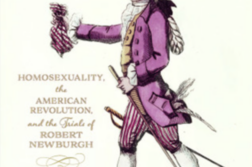This article was excerpted and adapted from one that first appeared in Sexuality Research & Social Policy: Journal of National Sexuality Resource Center, an on-line academic journal. Copyright © 2005 by the National Sexuality Research Center, San Francisco State University.
THE INTERNET is transforming American politics, and it’s happening at a remarkably rapid rate. Its emergence as a political force dates back scarcely more than a decade, after all, to the 1992 presidential election, when both Bill Clinton and Jerry Brown were the first to use e-mail to communicate with reporters and the general public. The mid- to late-1990’s saw an intensification of Internet politics in several respects. Candidates established websites in the 1994 midterm election, and a range of news and political organizations launched websites dedicated to both coverage and activism. By the late-90’s the Internet had become not only a vehicle for information; its role in politics had become newsworthy in itself, as when on-line correspondent Matt Drudge first posted a report on Bill Clinton’s rumored affair with a Washington intern, or when independent prosecutor Kenneth Starr later posted his sexually explicit report on-line.





